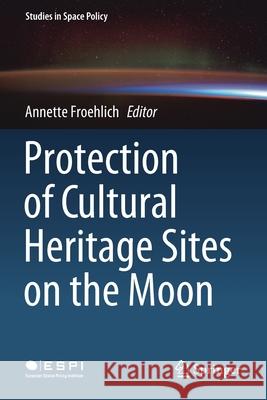Protection of Cultural Heritage Sites on the Moon » książka
topmenu
Protection of Cultural Heritage Sites on the Moon
ISBN-13: 9783030384050 / Angielski / Miękka / 2021 / 143 str.
Protection of Cultural Heritage Sites on the Moon
ISBN-13: 9783030384050 / Angielski / Miękka / 2021 / 143 str.
cena 484,18
(netto: 461,12 VAT: 5%)
Najniższa cena z 30 dni: 462,63
(netto: 461,12 VAT: 5%)
Najniższa cena z 30 dni: 462,63
Termin realizacji zamówienia:
ok. 16-18 dni roboczych.
ok. 16-18 dni roboczych.
Darmowa dostawa!
Kategorie BISAC:
Wydawca:
Springer
Seria wydawnicza:
Język:
Angielski
ISBN-13:
9783030384050
Rok wydania:
2021
Wydanie:
2020
Numer serii:
000375947
Ilość stron:
143
Waga:
0.22 kg
Wymiary:
23.39 x 15.6 x 0.84
Oprawa:
Miękka
Wolumenów:
01
Dodatkowe informacje:
Wydanie ilustrowane











